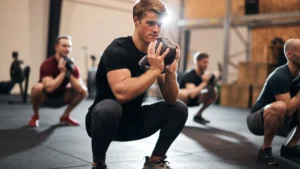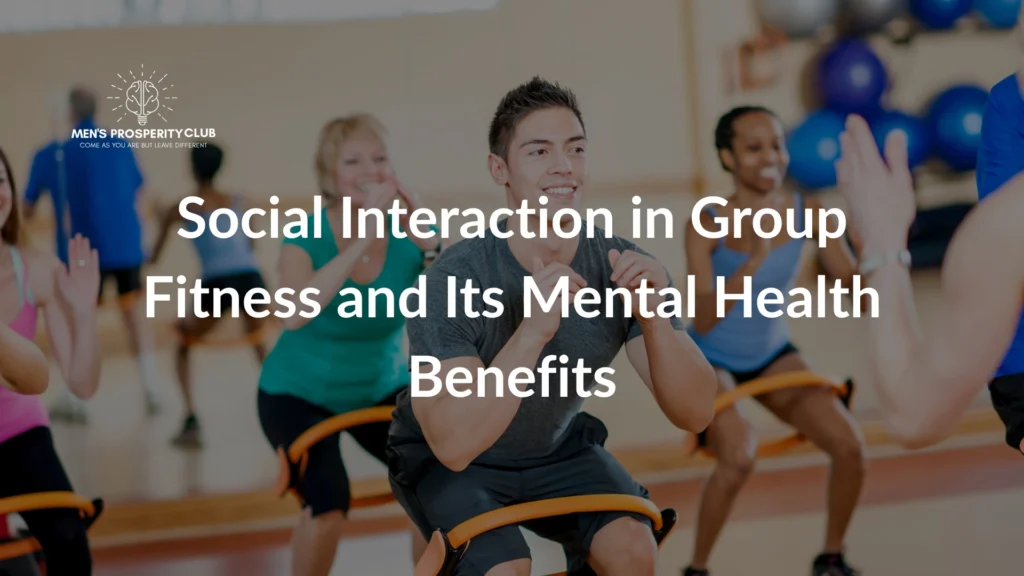In an era where digital connections often replace face-to-face interactions, group fitness emerges as a powerful antidote to social isolation whilst simultaneously boosting both physical and mental wellbeing. Recent research reveals compelling evidence that exercising alongside others delivers far more than just improved cardiovascular health – it creates a transformative experience that strengthens social bonds, reduces stress, and builds resilience against mental health challenges.
The Science Behind Social Fitness
Group exercise fundamentally changes how our bodies and minds respond to physical activity. Research demonstrates that working out in groups lowers stress levels by an impressive 26 percent compared to solo exercise sessions. Moreover, participants in group fitness programmes experience significantly improved quality of life, whilst those exercising alone show limited improvements despite exerting more effort.
The Mental Health Foundation reports that 82% of UK adults recognise the importance of regular physical activity for mental health and wellbeing. However, the social component of fitness adds an additional layer of psychological benefits that individual exercise simply cannot match. Research also shows that physical activity can boost self-esteem, mood, sleep quality and energy, as well as reducing your risk of stress, but when combined with social interaction, these effects become even more pronounced.
Recent studies published in the Journal of the International Neuropsychological Society reveal striking findings: people who regularly participate in social activities showed 70% less decline in memory and thinking skills compared to those who rarely engaged socially. This cognitive protection becomes particularly relevant when considering how group fitness classes combine both social engagement and physical activity.

Building Connections Through Movement
The social aspect of group fitness creates what researchers term “social fitness” – the fourth pillar of health alongside physical fitness, nutrition, and mental wellbeing. When individuals exercise together, they naturally form supportive communities that extend beyond the gym walls. These connections prove particularly valuable during challenging times, providing emotional support and accountability that individual workouts lack.
Professional fitness organisations increasingly recognise this phenomenon. According to a new study, more than a quarter of Brits now exercise to connect with others, indicating a growing awareness of fitness as a social activity rather than merely a physical pursuit. This shift reflects changing attitudes towards exercise, where the journey becomes as important as the destination.
The Men’s Prosperity Club successfully demonstrated these principles in action during their recent “Fit For Life: A Fitness Workshop” held on 30th August 2025. This event perfectly exemplified how group fitness initiatives can create meaningful connections whilst promoting physical and mental health awareness among men – a demographic often overlooked in wellness discussions. Participants experienced firsthand the power of combining physical activity with social support, reinforcing the research findings about group fitness benefits.
Neurobiological Benefits of Group Exercise
The brain responds differently to group exercise compared to solitary workouts. When exercising with others, the body releases higher levels of endorphins – often called “feel-good” hormones – due to the combined effects of physical exertion and social bonding. This phenomenon, known as “collective effervescence,” creates a powerful psychological boost that participants carry with them long after the workout ends.
Furthermore, fitness may promote stress resilience by optimising neuroendocrine and physiological responses to physical and also psychosocial stressors. Group settings amplify these benefits by providing immediate social support when individuals face physical or emotional challenges during exercise. The presence of others creates a buffer against stress whilst encouraging persistence through difficult moments.
Research indicates that group fitness participants experience enhanced brain plasticity and growth factor expression, leading to improved cognitive function and emotional regulation. These neurobiological changes contribute to better mood stability, reduced anxiety, and increased resilience against depression.
Breaking Down Mental Health Barriers
Group fitness environments naturally reduce stigma surrounding mental health discussions. When individuals share physical challenges together, they often feel more comfortable discussing emotional struggles. This openness creates opportunities for peer support and normalises conversations about mental wellbeing that might never occur in other settings.
National surveys reveal concerning statistics about UK mental health: mental health scores higher (54%) than getting in shape (49%) as the main motivation for exercise among British adults. This data suggests that people increasingly view physical activity as mental health treatment rather than purely aesthetic improvement.
Group fitness classes provide structured environments where individuals can address mental health concerns through movement whilst building supportive relationships. The combination proves particularly effective for managing anxiety, depression, and stress-related disorders that affect millions of UK residents annually.
Creating Inclusive Communities
Successful group fitness programmes prioritise inclusivity and welcome participants regardless of fitness level or background. This approach ensures that everyone can access the mental health benefits of social exercise without fear of judgement or exclusion. Well-designed classes accommodate various abilities whilst maintaining challenging workouts that promote genuine physical improvement.
The community aspect extends beyond scheduled sessions. Many group fitness participants develop friendships that provide ongoing emotional support, accountability partnerships, and social connections that combat loneliness – a significant public health concern affecting mental wellbeing across all age groups.
Instructors play crucial roles in fostering these communities by creating safe, welcoming environments where participants feel valued and encouraged. Their leadership directly influences group dynamics and determines whether classes become mere exercise sessions or transformative social experiences.

Practical Applications and Getting Started
Individuals interested in accessing these benefits can start by exploring local fitness centres, community centres, or outdoor group activities like parkrun. The key lies in finding activities that align with personal interests whilst providing regular opportunities for social interaction.
Begin with low-pressure environments such as walking groups, beginner yoga classes, or swimming sessions. These settings typically attract welcoming communities that support newcomers whilst providing excellent introduction to group fitness culture.
Consider trying different types of group activities to find the best fit. Dance classes, martial arts, team sports, and circuit training all offer unique social dynamics whilst delivering substantial mental health benefits. The variety ensures that everyone can find activities that resonate with their personality and preferences.
Measuring Success Beyond Physical Metrics
Group fitness success extends far beyond traditional measures like weight loss or strength gains. Participants often report improved sleep quality, enhanced mood stability, increased confidence, and stronger social connections. These psychological benefits frequently prove more valuable and long-lasting than physical improvements alone.
Regular participation in group fitness activities creates positive feedback loops where improved mental health motivates continued attendance, which further strengthens social bonds and psychological wellbeing. This cycle proves particularly beneficial for individuals recovering from mental health challenges or managing chronic conditions.
The social accountability inherent in group settings also improves exercise adherence rates. When individuals feel connected to their fitness communities, they become more likely to maintain consistent exercise routines that support long-term mental and physical health goals.
The Future of Social Fitness
As mental health awareness continues growing, group fitness will likely play increasingly important roles in community wellness strategies. Healthcare providers increasingly recognise exercise as legitimate mental health treatment, particularly when delivered through social, supportive environments.
Technology will continue enhancing group fitness experiences through virtual classes, social fitness apps, and hybrid programmes that combine in-person and digital elements. However, the fundamental human need for genuine connection and shared experiences will ensure that traditional group fitness remains central to mental health promotion.
Ready to experience the transformative power of group fitness for yourself? Join the Men’s Prosperity Club for upcoming community events that combine physical activity with meaningful social connections. Our programmes are designed to support men’s mental health and wellbeing through inclusive, supportive group activities.
Discover more events and become part of our growing community by visiting the Men’s Prosperity Club. Your journey to better mental health through social fitness starts with a single step – take it with us.




